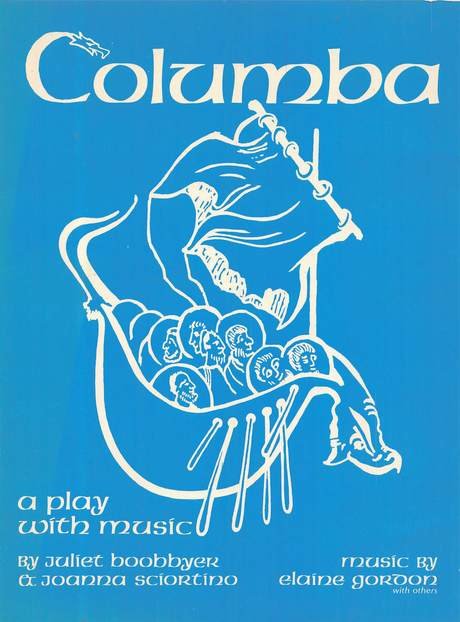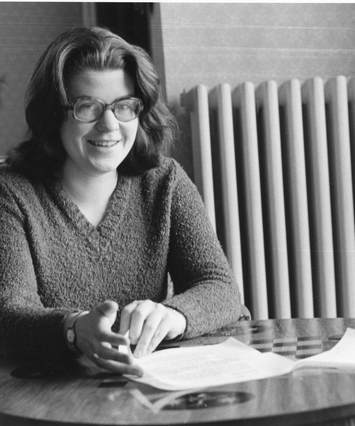Columcille, to use his familiar Irish name, is, after Patrick, Ireland's greatest early Christian hero. He is also the best known and loved of all the Scottish saints. Columba, a sixth century Irish prince, gifted with all the talents to have made him a great High King, turned down his birthright to become a monk. His nature in early manhood was as stormy as the turbulent times in which he lived. The crisis in his career and the transformation in his character which followed, resulted in his exile to Scotland. There his life work could be said to mark the beginning of a new age. The so-called Dark Ages have also been called the Golden Age of the Celts — the bridge between Roman civilisation and medieval Europe.
Columba and his fellow monks made Ireland literate. From Iona and other monasteries they bound together the warring tribes of Scotland with a common faith and started to Christianize the North of England. In the years ahead the Irish saints and scholars were to become the intellectual leaders of Europe. Their schools sent out the Peregrini, bringing culture and faith to a continent disintegrating into barbarism.
This musical play gives dramatic form to the story of Columba, clothing it in flesh and blood. It reveals how deep was the debt that Britain and Europe owe to Ireland — an historical fact of which many of us are ignorant on the eastern side of the Irish Sea. In gratitude to Ireland, then, this play was written, and in the belief that changes as fundamental as those set in motion by Columba and his friends could happen in our own equally confused and violent age.
Columba was also a poet and a musician. His story could never have been told without music. Elaine Gordon from Cork, working and researching with Michael O'Callaghan (University College, Cork) and Duncan Morison from the Outer Hebrides, wrote the lovely melodies and background music.
COLUMBA was first performed at the Edinburgh Festival Fringe in 1978 at the Netherbow Theatre, the Church of Scotland Arts Centre. In the next two years there were six different productions Of the play, presented by the Adamnan Players. All of these were directed by Elisabeth Tooms, who first began to direct plays at Oxford University in the '70s. She it was who helped knock the script into shape and trained the many actors, both professional and non- professional, who took part. A t the heart of the company there were a number of men and women, including the authors, long associated with the work of Moral Re-Armament. For them, as for many others taking part, the staging of COLUMBA was an expression of their Christian commitment. "Thy will be done on earth .. ."
COLUMBA was performed all over Scotland from Alloway to the Orkneys and there were performances in Wales and in many parts of England.
English



